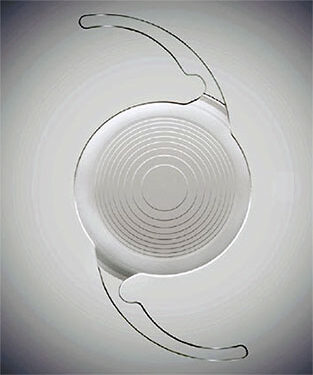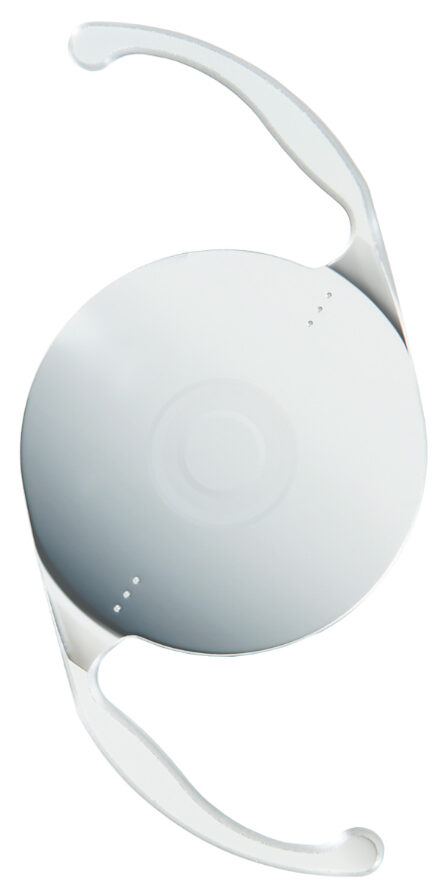Cataract surgery involves replacing the eye’s cataractous lens with an artificial intraocular lens (IOL) to restore clear vision.
With advancements in technology, various types of IOLs are available, each designed to meet different visual needs and lifestyles. Once your ophthalmologist has evaluated you for your cataract surgery, he/she will provide you with multiple options for IOLs (lens) which can be implanted in your eye. Since this implanted lens will more or less be with you forever, you must make an informed decision. In this blog, we’ll explore the different types of IOLs to help you choose the right IOL for your cataract surgery.
1. Monofocal IOLs
Monofocal IOLs are the most commonly used lenses in cataract surgery. They have a single focusing distance, which means they are designed to provide clear vision at one specific distance- usually distance (But can be for near if your ophthalmologist is planning monovision)
Recommended for:
Patients with minimal astigmatism who would not mind wearing glasses for certain activities. For instance, reading glasses may still be needed for near tasks if the IOL is set for distance vision.

Pros:
- Monofocal lenses have been in use for a very long time. They have been time-tested and extremely reliable and predictable.
- Monofocal lenses are cheaper than multifocal/toric lenses. Also, most insurance companies will completely cover the cost of monofocal lenses, hence making it a cost-effective option for everyone
- Monofocal lenses can be easily customised for achieving monovision – a concept where you have perfect vision in one eye for distance and perfect vision in another eye for near, effectively ensuring spectacle-free vision overall.
Cons:
- As discussed before, they have a single focusing distance. If corrected for distance, the patient will have to mandatorily wear glasses for near work
Multifocal IOLs
Multifocal IOLs are designed to provide clear vision with multiple focusing distances. They have concentric rings with different powers, allowing the eye to focus on objects at various distances.
Recommended for:
Patients who want to reduce their dependence on glasses for both near and distant activities

Pros:
- Good vision at multiple distances – distant, near, and intermediate
- Reduced to no need for glasses even for near – thus, freedom from glasses for almost all routine activities in day-to-day life
- Improved cosmesis – most people think using presbyopic glasses (bifocals) is a sign of aging!
Cons:
- Potential for glare and halos around lights, especially at night. Especially in the early phase. Eventually, it will settle down in most cases
- Adjustment period may be required as the brain adapts to the new lens.
- More expensive than monofocals
Extended Depth of Focus (EDOF) IOLs
EDOF IOLs provide a continuous range of vision from distance to intermediate, with a more limited near vision capability. They use advanced optical designs to extend the range of clear vision without multiple focal points.
Recommended for
Patients who prioritize clear distance and intermediate vision (computer screen)

Pros:
- Since there is an extended focus built in the lens, the patient enjoys very clear distance and intermediate vision
- Fewer visual disturbances like glare and halos compared to multifocal IOLs.
Cons:
- The patient might require glasses for near vision
- More expensive than monofocal IOL.
Toric IOLs
Toric IOLs are specifically designed for patients with astigmatism. They have different powers in different meridians of the lens to correct the irregular curvature of the cornea, providing clear vision.
Recommended for
Patients with significant astigmatism (>1 D) who want to reduce their need for glasses.
Pros:
- Corrects astigmatism, reducing dependence on glasses for distance vision.
- Available in both monofocal and multifocal designs.
Cons
- More expensive than standard monofocal IOLs.
- Requires precise placement during surgery for optimal results. Hence important to get a toric IOL implantation by a well-trained surgeon only
Choosing the Right IOL for You
Now that we know about the most common IOLs, let us focus on the primary problem – how to choose the right IOL for you:
Choosing the right IOL is a multifaceted decision and requires touching upon the following aspects of your life:
Lifestyle:
Are you an outdoor enthusiast who prioritizes perfect distance vision? Or are you someone who doesn’t want glasses at any cost? Or do you require near vision for detailed tasks like reading or crafts?
It is important that you mull over your needs to the ophthalmologist so that she/he can recommend the best option for you.
Astigmatism:
If you have astigmatism of more than 1D and you wish to remain spectacle-free for distance vision, then toric IOLs are the best option for you
Pre-existing conditions:
Certain eye conditions like glaucoma, retinal degeneration may affect the choice of specific IOLs for you. Hence it is important that your ophthalmologist is aware about your entire history before making any IOL recommendations
Your ophthalmologist will conduct a thorough evaluation and discuss the best options based on your eye health and visual goals. Remember, the decision is highly personal, and one size fits all approach is strongly not recommended
To summarise:
Cataract surgery not only restores vision but also offers an opportunity to enhance your overall quality of life. Understanding the different types of IOLs available is crucial to making an informed decision. Consult with your eye care professional to explore the best options tailored to your needs.
At Arham Eye Care, we are dedicated to providing personalized care and helping you achieve the best possible vision. Dr Hemali Doshi is a specialist cataract surgeon adept at using all the above-mentioned types of lenses.
If you want to know more about the best IOL for you, book your appointment with Dr Hemali Doshi now
If you have any questions or want to learn more about the IOL options available, don’t hesitate to contact us at [Arham Eye Care](#). Your vision is our priority!
